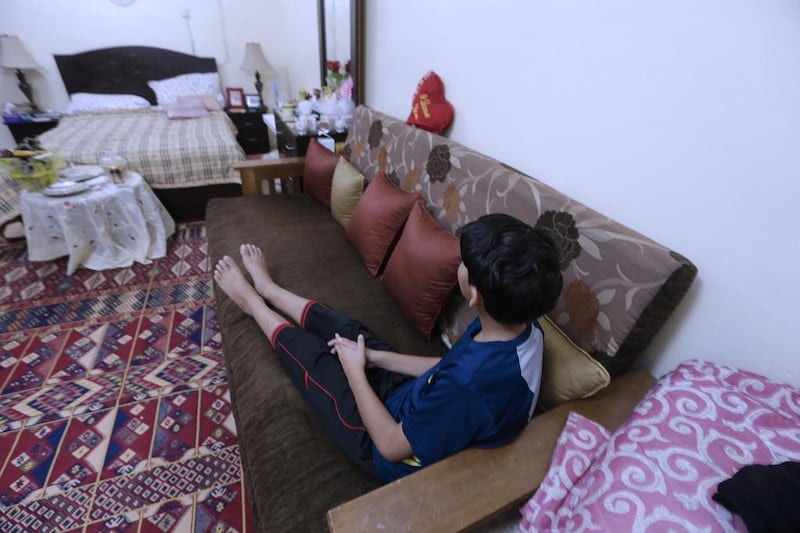An Egyptian woman who has dedicated her life to raising her children and teaching Arab to others, finds herself in financial difficulty with mounting medical bills for her sickly son.
DUBAI // As a mother of five, Sabah Saeed has barely been able to make ends meet since her husband died 10 years ago. Now, she is going through the most challenging period of her life.
Last year, her son Mazem was diagnosed with Crohn’s disease and the cost of treatment is Dh100,000. Doctors say 90 per cent of the 12-year-old’s intestines are damaged, and that he requires three months of fasting and lifelong medication.
Mrs Saeed, an Egyptian living in Dubai, has found herself unable to afford rent for the first time. The 58-year-old fears eviction because of accumulating medical bills.
“With the grace of God, I managed all these years without a husband, family or anyone to support me. Now I can’t do it anymore,” she says.
Mazem must drink a type of formula milk and take medicine daily, which Mrs Saeed says she cannot afford. One bottle of the formula he needs each day costs Dh126, and medicine that lasts for a few weeks costs Dh287.
“He still needs ultrasounds and follow-ups until he is weaned into a diet that he can tolerate,” she says.
Before being put on his fasting diet, Mazem suffered from constant stomach aches, diarrhoea and vomiting.
“Even a sip of water was too much for him to handle. So I’m stuck now. I can’t afford treatment and I can’t stop it because I will be risking my son’s life.”
For 10 years, Mrs Saeed supported her five children by giving private Arabic lessons to pupils in the UAE.
She teaches every day of the week, schooling children up to year five.
“Teaching is a passion of mine. I love that I’m making a difference in these children’s lives. My first student ever has graduated from university.”
She began teaching when she came to the UAE with her Yemeni husband in the 1980s.
She had met him when he went to Egypt on holiday. She was 18 and he was 23.
“He was already working in the military and soon after we married he brought me back to the UAE,” Mrs Saeed says.
“I was comfortable. We had two salaries and we could always pay our bills, and had a little extra to enjoy ourselves.”
When her husband died, an Emirati neighbour agreed to sponsor her as long as she paid the residency fees.
“I started giving additional lessons and things started becoming hard, but I still managed,” she says. “All my children were in school and we could pay our bills.”
The number of students she instructs fluctuates and she charges between Dh300 and Dh500 per month, depending on how much their families can afford.
“Teaching is a passion. I am shaping and helping in building the future generation,” she says, explaining why she does not charge more.
“There is nothing more noble that teaching. If my situation wasn’t so hard I wouldn’t have even asked for money in return.”
Hisham Al Zahrani, manager of zakat and social services at Dar Al Ber Society, says: “This is a teacher, a mother and a widow – teaching our children for more than 20 years and single-handedly raising her own children for almost 10 years.
“We hope readers can reach out to this woman who, for the first time, is asking for assistance instead of giving it.”
salnuwais@thenational.ae






